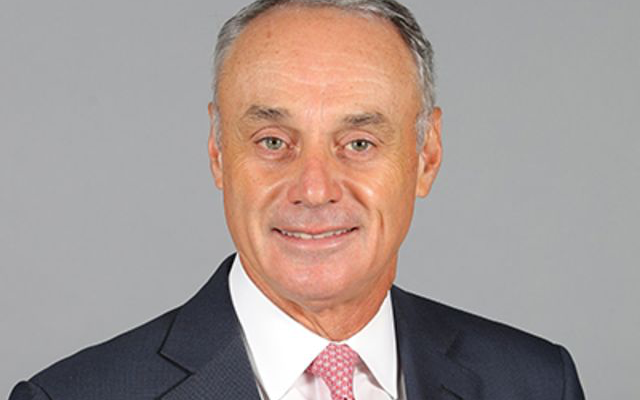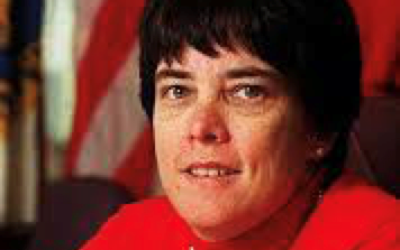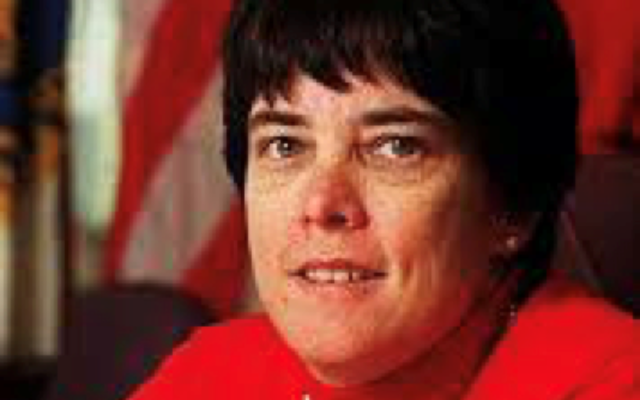Federal Judge Nixes All-Star Game Return
A motion to bring the game back to Cobb County was denied by a judge, who also cited failings in the case brought by a small business group.
Dave Schechter is a veteran journalist whose career includes writing and producing reports from Israel and elsewhere in the Middle East.
A legal effort to force return of the Major League Baseball All-Star Game to Truist Park in Cobb County has been rejected by a federal judge in New York.
U.S. District Judge Valerie E. Caproni denied an injunction sought by the Job Creators Network, ruling that the small business advocacy group lacked standing to file suit.
JCN, in turn, said that it may appeal to a higher umpire, to the U.S. Court of Appeals for the Second Circuit or directly to the Supreme Court.
At issue is MLB’s decision to remove the July 13 game from Truist Park, home of the Atlanta Braves, in response to Georgia’s controversial new voting law. The game will be played at Coors Field in Denver, home of the Colorado Rockies.

Following a June 10 hearing, Caproni was unsparing in her assessment of the case presented by JCN’s lawyer Howard Kleinhendler. “To say that the legal underpinnings of this lawsuit are weak and muddled is an understatement,” Caproni said. She’s a University of Georgia School of Law graduate who was nominated to the federal bench by President Barack Obama.
 JNC reacted with a baseball analogy. “The judge’s disappointing ruling is just one strike against us, and we are still up to bat, . . . To be clear, JCN lost on standing; MLB did not win on the merits. By demonstrating clear harm to our members and us as an organization, we believe that the judge erred in her decision, and we do have standing,” Alfredo Ortiz, president and CEO of the Job Creators Network, said in a statement issued June 11. JCN was formed in 2011 by Home Depot co-founder Bernie Marcus.
JNC reacted with a baseball analogy. “The judge’s disappointing ruling is just one strike against us, and we are still up to bat, . . . To be clear, JCN lost on standing; MLB did not win on the merits. By demonstrating clear harm to our members and us as an organization, we believe that the judge erred in her decision, and we do have standing,” Alfredo Ortiz, president and CEO of the Job Creators Network, said in a statement issued June 11. JCN was formed in 2011 by Home Depot co-founder Bernie Marcus.
Caproni said that JCN “has failed to demonstrate that it is likely to suffer irreparable harm in the absence of an injunction.”
JCN had sought $100 million on behalf of local and state businesses and $1 billion in punitive damages as well as an order that MLB be ordered to “immediately transfer the 2021 All-Star Game back to Truist Park with all pre-game events.”
The June 10 hearing dealt with the motion for an injunction requiring return of the game to Truist Park in Cobb County. A pre-trial conference on the financial damages issue is scheduled for July 9.

The JCN filed suit May 31, naming as defendants MLB Commissioner Robert M. Manfred Jr.; Tony Clark, executive director of the Major League Baseball Players Association; and 50 “John Does.” The latter were identified as “businesses, corporations and individuals that conspired with Defendants to violate [federal law] and participated in committing the other tortious claims. … However, at present the identities of these persons are unknown.”
In a June 7 filing, MLB referred to the suit as “political theatrics.”
The Georgia law was passed in the wake of elections in which Democrat Joe Biden defeated incumbent Republican President Donald Trump and Senate runoffs in which Democrats Jon Ossoff and Rev. Raphael Warnock unseated Republicans. The state audited, recounted by machine, and recounted by hand the presidential vote, each time verifying Biden’s victory by about 12,000 votes. Secretary of State Brad Raffensperger, a Republican, said that Georgia experienced “safe, secure, honest elections.”
Multiple challenges have been filed in federal courts against the Georgia law, which critics have labeled “voter suppression,” alleging that the measure violates the Fourteenth Amendment of the Constitution and the Voting Rights Act.
According to the JCN suit, Cobb County budgeted $2 million “to meet the expected influx of tourists and fans for the big event. Businesses in the Atlanta metro region stood to earn $100 million. Multiple municipalities were counting on millions more in tax revenues . . . . The damages resulting from the cancellation of the All-Star Game in Atlanta are staggering. More than 8,000 hotel reservations were canceled; revenues from ticket sales and stadium food by the more than 41,000 expected to attend the events at Truist Park were lost.

“Defendants took this all away in the blink of an eye,” after Gov. Brian Kemp signed the Election Integrity Act on March 26, the suit said. “The law intended to strengthen the integrity of mail-in ballots and added other measures to Georgia’s voting laws. The Act had nothing to do with baseball. It had nothing to do with the All-Star Game. It had nothing to do with the honest, hard-working men and women of Georgia who relied on MLB’s promise to hold the All-Star Game at Truist Park.”
The JCN suit said that MLB’s “purposeful and outrageous conduct” violated federal protections against being deprived “of any rights, privileges, or immunities secured by the Constitution and laws” or depriving “any person or class of persons of the equal protection of the laws.”
Caproni disagreed, stating, “MLB voted with its feet when politicians in Georgia made a policy decision with which [MLB] strongly disagreed. For all this court knows, many of the small business owners in the Atlanta area agree with MLB that the policy decisions reflected in the new Georgia election law are poor policy choices. But whether small business owners as a group agree or disagree, are deeply divided or are agnostic on that issue, it is hard to see how MLB’s decision had an impact on the equal protection rights of small business owners as a group.”
JCN also claimed that MLB’s decision damaged the group itself, requiring it to spend $1.6 million to support metro Atlanta members, as well as leasing signs in New York’s Times Square and advertising in The New York Times.
Caproni rejected that argument, stating that such activity was not different than JCN’s normal operations and did not grant the group legal standing.
The judge appeared unimpressed by argument in the JCN suit that because Georgia has a larger population of African Americans than Colorado, the suit discriminated against Blacks. “You haven’t shown that there’s a disproportionate impact on minority members of JCN. You haven’t even alleged that there are any minority members of JCN,” Caproni said.
In his statement, JCN president and CEO Ortiz said, “If we don’t continue to fight for small businesses, they will continue to be victimized as they have been by the MLB, destroying the backbone of our communities. JCN is still at the plate in this case. And when it comes to fighting for small businesses, we will always swing for the fences.”
- Dave Schechter
- News
- Sports
- Major League Baseball
- All Star Game
- Cobb County
- U.S. District Judge Valerie E. Caproni
- Job Creators Network
- Supreme Court
- U.S. Court of Appeals for the Second Circuit
- Atlanta Braves
- Truist Park
- Coors Field
- Colorado Rockies
- University of Georgia School of Law
- Howard Kleinhendler
- President Barack Obama
- Bernie Marcus
- Alfredo Ortiz
- Home Depot
- Robert M. Manfred Jr.
- Tony Clark
- President Donald Trump
- Jon Biden
- Jon Ossoff
- Raphael Warnock
- Brad Raffensperger
- 14th Amendment
- Voting Rights Act
- Gov. Brian Kemp
- Election Integrity Act






comments